NEWS ANALYSIS: Suu Kyi’s proxy to preside over Myanmar’s awakening
by Agency Staff,
2016-03-11 05:52:09.0
NAYPYIDAW — Htin Kyaw, a close friend and former driver of Aung San Suu Kyi, was nominated yesterday to be Myanmar’s first civilian president in decades. He will act as a proxy for Ms Suu Kyi whose foreign-born children disqualify her from the presidency under a constitution drafted by the military.
Mr Kyaw still needs to be assessed for suitability under the constitution and then voted in by Myanmar’s two legislatures.
That vote should be a formality — both houses are dominated by Ms Suu Kyi’s party, the National League for Democracy (NLD).
He will take over from army-backed president Thein Sein on March 31. Ms Suu Kyi will pick her cabinet and her government will operate from early next month.
Ms Suu Kyi may fill the foreign minister post, which would mean relinquishing her party position, but would give her a seat at the army-dominated Security Council.
There are other pitfalls. The military may decide her proxy president flouts the constitution.
And a puppet leader may not be fully compliant.
It is difficult to overstate how monumental the polls in November last year and the peaceful handover are in a country battered by decades of corrupt and brutal junta rule.
But the military is far from a spent force as the constitution ensures it retains significant power. A quarter of parliamentary seats go to unelected soldiers, while the military retain a vice-president and control of three ministries: home, defence and border affairs.
Generals oversee the National Defence and Security Council, which can seize power in times of national emergency and runs two huge business conglomerates.
The NLD has provided few policy details beyond a broad campaigning slogan of "change".
The challenges are numerous and complex. Myanmar is one of Asia’s poorest countries, blighted by cronyism, corruption and a woeful lack of investment during the junta years, with education and health especially underfunded.
Many of its ethnic minority border regions are still wracked by insurgencies and Ms Suu Kyi has said securing a countrywide peace deal will be a priority. But it is unclear how much say the NLD will have in a peace process requiring co-operation from the army.
Sharing Myanmar’s natural resources more equitably and dealing with sectarian tensions are also major hurdles.
After the election, Ms Suu Kyi held meetings with Myanmar’s army chief to build trust.
But those talks made little headway in changing the constitution to allow her to serve as president. Constitutional changes need the approval of more than threequarters of both legislatures so the military have a de facto veto.
Ms Suu Kyi has said she needs "one brave soldier" to cross the aisle to her cause.
AFP
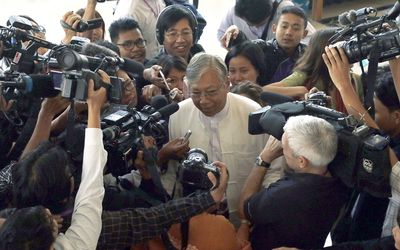
TRUSTED: Htin Kyaw, who was nominated yesterday by Aung San Suu Kyi’s party as president of Myanmar, talks to the media on February 1. Picture: AFP PHOTO
NAYPYIDAW — Htin Kyaw, a close friend and former driver of Aung San Suu Kyi, was nominated yesterday to be Myanmar’s first civilian president in decades. He will act as a proxy for Ms Suu Kyi whose foreign-born children disqualify her from the presidency under a constitution drafted by the military.
Mr Kyaw still needs to be assessed for suitability under the constitution and then voted in by Myanmar’s two legislatures.
That vote should be a formality — both houses are dominated by Ms Suu Kyi’s party, the National League for Democracy (NLD).
He will take over from army-backed president Thein Sein on March 31. Ms Suu Kyi will pick her cabinet and her government will operate from early next month.
Ms Suu Kyi may fill the foreign minister post, which would mean relinquishing her party position, but would give her a seat at the army-dominated Security Council.
There are other pitfalls. The military may decide her proxy president flouts the constitution.
And a puppet leader may not be fully compliant.
It is difficult to overstate how monumental the polls in November last year and the peaceful handover are in a country battered by decades of corrupt and brutal junta rule.
But the military is far from a spent force as the constitution ensures it retains significant power. A quarter of parliamentary seats go to unelected soldiers, while the military retain a vice-president and control of three ministries: home, defence and border affairs.
Generals oversee the National Defence and Security Council, which can seize power in times of national emergency and runs two huge business conglomerates.
The NLD has provided few policy details beyond a broad campaigning slogan of "change".
The challenges are numerous and complex. Myanmar is one of Asia’s poorest countries, blighted by cronyism, corruption and a woeful lack of investment during the junta years, with education and health especially underfunded.
Many of its ethnic minority border regions are still wracked by insurgencies and Ms Suu Kyi has said securing a countrywide peace deal will be a priority. But it is unclear how much say the NLD will have in a peace process requiring co-operation from the army.
Sharing Myanmar’s natural resources more equitably and dealing with sectarian tensions are also major hurdles.
After the election, Ms Suu Kyi held meetings with Myanmar’s army chief to build trust.
But those talks made little headway in changing the constitution to allow her to serve as president. Constitutional changes need the approval of more than threequarters of both legislatures so the military have a de facto veto.
Ms Suu Kyi has said she needs "one brave soldier" to cross the aisle to her cause.
AFP


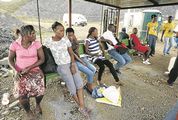
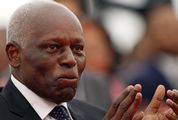

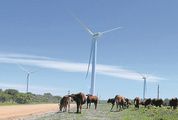


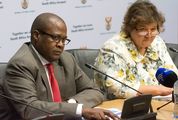
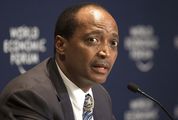

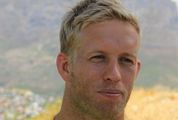








Change: 0.40%
Change: 0.47%
Change: -0.49%
Change: 0.53%
Change: 1.03%
Data supplied by Profile Data
Change: 1.71%
Change: 1.28%
Change: 0.40%
Change: 0.00%
Change: 1.64%
Data supplied by Profile Data
Change: -1.27%
Change: 0.00%
Change: 0.05%
Change: -0.08%
Change: 0.35%
Data supplied by Profile Data
Change: -0.02%
Change: 0.21%
Change: -0.06%
Change: 0.53%
Change: 0.70%
Data supplied by Profile Data